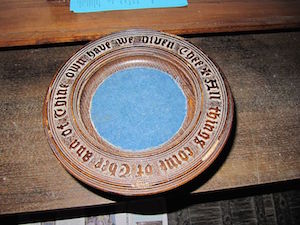Inconsistencies, Fabrications Lead Court to Side Against Taxpayer on Alleged Church Donations
 A long-time agent for the Internal Revenue Service found herself on the wrong of an investigation and enforcement matter regarding several thousand dollars of church donations. The U.S. Tax Court agreed with the IRS’s imposition of a tax deficiency and accuracy penalty, issuing a sharply critical opinion, concluding that the taxpayer’s supposed evidence ranged from inconsistent to phony and, given her level of education and knowledge, made clear that she was actually engaged in an “inept attempt” to create a series of false charitable deductions.
A long-time agent for the Internal Revenue Service found herself on the wrong of an investigation and enforcement matter regarding several thousand dollars of church donations. The U.S. Tax Court agreed with the IRS’s imposition of a tax deficiency and accuracy penalty, issuing a sharply critical opinion, concluding that the taxpayer’s supposed evidence ranged from inconsistent to phony and, given her level of education and knowledge, made clear that she was actually engaged in an “inept attempt” to create a series of false charitable deductions.
Margaret Payne, a veteran IRS agent of more than 20 years, spent a lot of her free time at casinos, playing slots and card games. The agent claimed that, during 2008 and 2009, she gave more than $37,000 of her gambling winnings to the Living Stone Baptist Church in Brooklyn.
The issue in Payne’s case was the IRS disallowance of many of her claimed charitable contributions, triggering a deficiency of $6,500 and an accuracy penalty of $1,300. The taxpayer asserted that she had ample evidence she made the donations, but the Tax Court decided otherwise. Payne’s “evidence” was “full of inconsistencies, contradicting testimony, fabricated documents and simple untruths,” the court wrote. The poor quality of the taxpayer’s purported evidence led the court to deride her case as a “fictional account of the past.” Why did the court come down so hard on this taxpayer? One of the key components was a letter, that the church’s pastor allegedly composed acknowledging receipt of the large donations. While the church’s pastor contradicted his own testimony regarding whether he knew Payne, he consistently maintained that the letter was a phony document where the creator cut the church’s letterhead and pasted it onto another document and forged his signature. The pastor noted that the creator of the bogus document even misspelled his name.
The court, in upholding the 20 percent penalty, also appeared to slam Payne as a taxpayer who should’ve known better. The court highlighted that the taxpayer had college degrees in accounting, finance and economics and was most of the way through completing her CPA exam. On top of that, the taxpayer had 20 years’ experience as an IRS agent, leading the court to conclude that her underpayment of taxes was the result of a “very deliberate and knowing attempt to reduce her tax liabilities.”
The agent maintained her story, telling Forbes magazine that the trial was “completely unfair and biased.”
Many taxpayers struggle with making sure that they claim each deduction to which they are entitled. It is important, as this case illustrates, to make certain that the deductions one claims have the proper documentation to back them up, and do not rely on bogus evidence created after the fact. As you work through documenting and claiming your charitable and other deductions, consult the tax attorneys at Samuel C. Berger, P.C. and CPAs at S.C. Berger, P.C. for the finest advice for ensuring that your deductions pass muster.
Reach us online or call (201) 587-1500 or (212) 380-8117 to schedule your free, confidential initial consultation today.
More Blog Posts:
New Jersey Strips Contractor of Authority to Own or Run a Business for Alleged Consumer Fraud, New York & New Jersey Business Lawyer Blog, Dec. 14, 2012
Family Convicted of Defrauding New York Immigrants in Green Card Scam, New York & New Jersey Immigration Lawyer Blog, Feb. 3, 2012
New Jersey Woman Accused of Offering Fraudulent Legal Services to Immigrants, New York & New Jersey Immigration Lawyer Blog, March 8, 2012
Image courtesy of Bill Nicholls via Wikimedia Commons
 Hackensack, New Jersey Church Donation Attorney Samuel C Berger, PC Home
Hackensack, New Jersey Church Donation Attorney Samuel C Berger, PC Home



